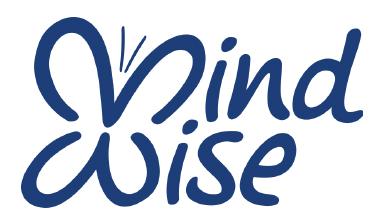Schizophrenia
*You can get medication and psychological treatments for schizophrenia.
- Schizophrenia is a mental illness that affects the way you think.
- It affects about 1 in every 100 people.
- Schizophrenia may develop during early adulthood.
- You can have ‘positive’ and ‘negative’ symptoms of schizophrenia.
- Positive symptoms are experiencing things that are not real (hallucinations) and having unusual beliefs (delusions)
- Negative symptoms may be a lack of motivation and being withdrawn. They often last longer than positive symptoms.
- There are different types of schizophrenia.
- There are different causes of schizophrenia including genetics and environment.
Schizophrenia is a mental illness which affects the way you think. The symptoms may affect how you cope with day to day life. You could be diagnosed with schizophrenia if you experience some of the following symptoms.
- hallucinations
- delusions
- disorganised thinking
- lack of motivation
- slow movement
- change in sleep patterns
- poor grooming or hygiene
- changes in body language and emotions
- less interest in social activities
- low sex drive.
Schizophrenia is a common illness. About one in a hundred people will develop schizophrenia. It can develop during young adulthood. The early stage of the illness is called ‘the prodromal phase’. During this phase your sleep, emotions, motivation, communication and ability to think clearly may change.
If you become unwell this is called an ‘acute episode’. You may feel panic, anger or depression during an acute episode. Your first acute episode can be a shocking experience because you are not expecting it or prepared for it.
Myths about schizophreniaThere are some myths or mistaken beliefs about schizophrenia which come from the media.
- ‘Schizophrenia means someone has a split personality’
A common myth is that schizophrenia means that people have multiple or split personalities. This is not the case. The mistake may come from the fact that the name 'schizophrenia' comes from two Greek words meaning 'split' and 'mind'.
- ‘Schizophrenia causes people to be violent’
Research shows that only a small number of people with the illness may become violent, much in the same way as a small minority of the general public may become violent. People with a diagnosis of schizophrenia are more likely to be a danger to themselves than to other people. But as these incidents can be shocking, the media often report them in a way which emphasises the mental health aspects. This can create fear and stigma in the general public.
Types & SymptomsThere are no blood tests or scans that can prove if you have schizophrenia. Only a psychiatrist can diagnose you after a full psychiatric assessment. Psychiatrists use manuals to diagnose mental illnesses. The main manuals used by doctors are the:
- International Classification of Diseases (ICD-10) which is produced by the World Health Organisation (WHO)
- Diagnostic and Statistical Manual (DSM-5) which is produced by the American Psychiatric Association.
Doctors in the UK use the ICD-10.
The manuals explain which symptoms should be present, and for how long.Your symptoms need to last for a least one month before your doctor can diagnose you. They may say you have a psychotic disorder or psychosis before they diagnose you with schizophrenia.
Sometimes the symptoms of schizophrenia are described as positive symptoms or negative symptoms. This does not mean that they are good or bad.
‘Positive’ symptoms are experienced in addition to reality. ‘Negative’ symptoms can effect your ability to function.
Positive symptoms
The terms ‘positive symptoms’ and ‘psychosis’ are generally used to describe the same symptoms. The following are positive symptoms.
- Hallucinations
- Delusions
- Disorganised thinking
To read more about Schizophrenia - click here














































































